Australia So Much to See
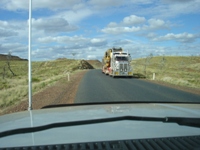
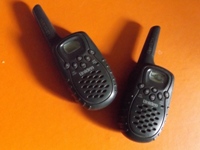
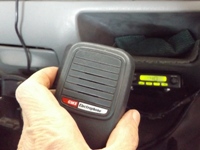
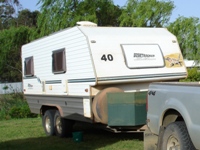
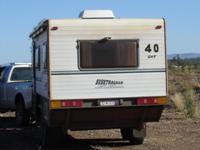
A. While there was a timeline set for using 40 channel UHF sets to no longer be legal to use, with date given as 30 June 2017, this
date has been withdrawn from the ACMA (Australian Communications and Media Authority) website. Perhaps the older sets do not
cause interference on the new channels sufficiently to cause concern. The additional channels 41 to 80 are on frequencies between
the pre-existing 40 channels. Or perhaps the authorities realise that it will be impossible to check on and police. As
no licence is required to use UHF radios, unlike the old HF CB radios, they will not know who is using these sets.
80
channel sets have been sold since 2011, and 40 channel sets should no longer be on the market, but for those of us using them they
still work just the same. Later versions of 40 channel units can be ungraded to 80 channels, but much older sets cannot.
The highway channel remains on 40, and other purpose specified channels also remain the same still within the 40 channel range.
If you are purchasing a new UHF radio, be sure it is an 80 channel set, as all in shops in Australia will be. Use
caution if buying from the internet; those purchased from overseas vendors may not be legal to use in Australia and may cause undue
interference. If you are asking about using an existing 40 channel set, you can keep on using it and you will still be in touch
with those around you on the highways, roads and tracks.
A. There is no compulsion to use any channel, although some are specified not to be used for voice communication, see UHF channel
allocation. 18 has been suggested for caravanners to chat on to leave the highway channel free. It is not exclusive
to caravanners and may be used by other individuals or services. We monitor and talk to trucks and all other vehicles on 40,
or the specified channel for that road if different. 18 is used for chit chat between caravanners travelling in convoy. These
channels are used by custom not by law.
When setting up your two-way you should be able to select a priority channel,
plus scan other channels you choose, eg 40 and 18 as a lot of caravanners do.
A. You do not need one but they are useful and can be a safety device in knowing what is ahead, particularly on narrow roads with
crest, or single lane bridges.
My husband has often said "UHF should be compulsory here" on certain roads. Announcing at narrow bridges or crests, particularly on roads frequented by road trains, is essential. This is not confined
to the back tracks. Even on the Great Northern Highway between Kununurra and Halls Creek, there were single lane bridges, and
on some with poor visibility road trains were announcing their approach and direction. This was in 2008, and a project
to replace bridges was under way. Most, but not all, have been replaced with double lane bridges.
We would not like to
travel without UHF, particularly on narrow roads and out of the way places.
Some of the times we have been pleased to have our
UHF -
To be called and told something is amiss - eg dragging a safety chains (we had lost a D clamp)
To call a truck approaching from behind to let him know we see him and will facilitate him overtaking. See Sharing the Road with Trucks
To be able
to talk to a truck in road train in front of us that was driving all over the road with a badly swaying rear trailer, so we could
safely overtake him
To know a road train is approached a narrow bridge
To announce on the specified channel on single
lane blind crests
To have some idea what was happening eg when traffic came to a standstill for hours on a very hot day in Port
Augusta (and the amusing banter kept us sane instead of suffering road rage)
To be warned of a hazard or accident up ahead
To
warn others of a hazard or accident they are approaching
To know of road conditions ahead (eg when on a clay road following rain)
or tell others what lies ahead for them
To be talked through a roadworks detour (where they let us go through as we had 4wd even
when towing)
To know about a slow and full highway width police escorted transport, and know when they were going to pull off
to allow traffic to pass. With a caravan, knowing well ahead gives you time to find a good place to pull off the road to allow
them past.
To communicate with an oncoming car "did you see - - - on the road" when looking for a spring hanger from our
caravan which had come off, and get the answer where it was
To meet up with internet friends when we were travelling in
the same area
To have a darn good laugh at a truckie telling a tale he knows will make the audience laugh
To be told by
a local about a place to go that is off the beaten track and most don't know to visit
To let others know why we were travelling
slow (mechanical issue with another vehicle we were accompanying after their breakdown)
Keeping in touch with others when travelling
in a group, without having to remain close together.
Does everyone have a UHF?
Only about half of the caravans that we have called have responded. At least in outback
areas such as the Gibb River Road, everyone seems to use UHF regardless pf type of vehicle.
Inbuilt set or hand held?
Hand held is adequate for communicating with passing trucks and hearing information relevant to your journey.
I have one watt Uniden brand hand helds, whereas a three or even a five watts what set would give a better range. Mine take three AAA batteries and I carry plenty of rechargeable AAAs (and AAs) with a charger than can do either size. Similar
can be purchased with a rechargeable battery and cradle, but for travelling I think to be able to change the batteries when needed
is an advantage. Just take a supply of batteries as if being used quite a bit the batteries can drain quickly and you may not have
a working unit at the time you need it. When not being used much, the batteries hold for ages. Mine take three AAA batteries
and I carry plenty of rechargeable AAAs (and AAs) with a battery charger.
They are satisfactory and give us good coverage between
vehicles up to a few kilometres apart, and the transmission is excellent.
Check if you can get a unit that you can put an external
antenna on and you will have virtually as good as built in for on road purposes.
The only disadvantage I find is that
clarity of sound from the small hand helds may not always be good, but they still come through clearly on the inbuilt set.
They
can also be used as a safety device is one of you goes bush walking on their own.
We have tried scanning but found it a waste of time when you just want highway information while travelling. We didn't want to listen
to the caravan convoy discussing where to stop for lunch, or the farmer communicating with his family or farm hands. Now we stay on
channel 40 unless in an area where another channel is specified, such as the Pacific Highway or if on a mining or logging route where
they are using a signed specified channel. Of course always move to another channel if wanting to chat is making contact on channel
40. That is what 18 caravanners channel was set for. We have a large 40 painted on the back and the front of the caravan.
We
don't always initiate conversations with trucks approaching from behind now as they rarely initiate communication. If we do the answer
is something like "stay as you are - I can pass you in eight kilometres" and followed up with "coming round you now" when we get to
the optimum spot which he knew. You do need to identify yourself and the truck as the signal can be heard for many kilometres by other
truckies and caravanners and even on other adjacent roads.
You can put the volume down or switch off when you get into larger
towns where the air waves become clogged and noisy, and unpleasant language may be heard. Out on the highways and byways, we
have found the truckies conversations useful or sometimes just entertaining.
Be polite at all times, and do not use bad language. No need to use jargon which you may have hear on the movies. Ask something like “Red xx lines truck behind xx brand caravanJack and Jill, are you on channel?” Converse normally as you would in person or on a phone. What you say can be potentially
heard by many others including those with young families in their car, so be mindful of your choice of words.